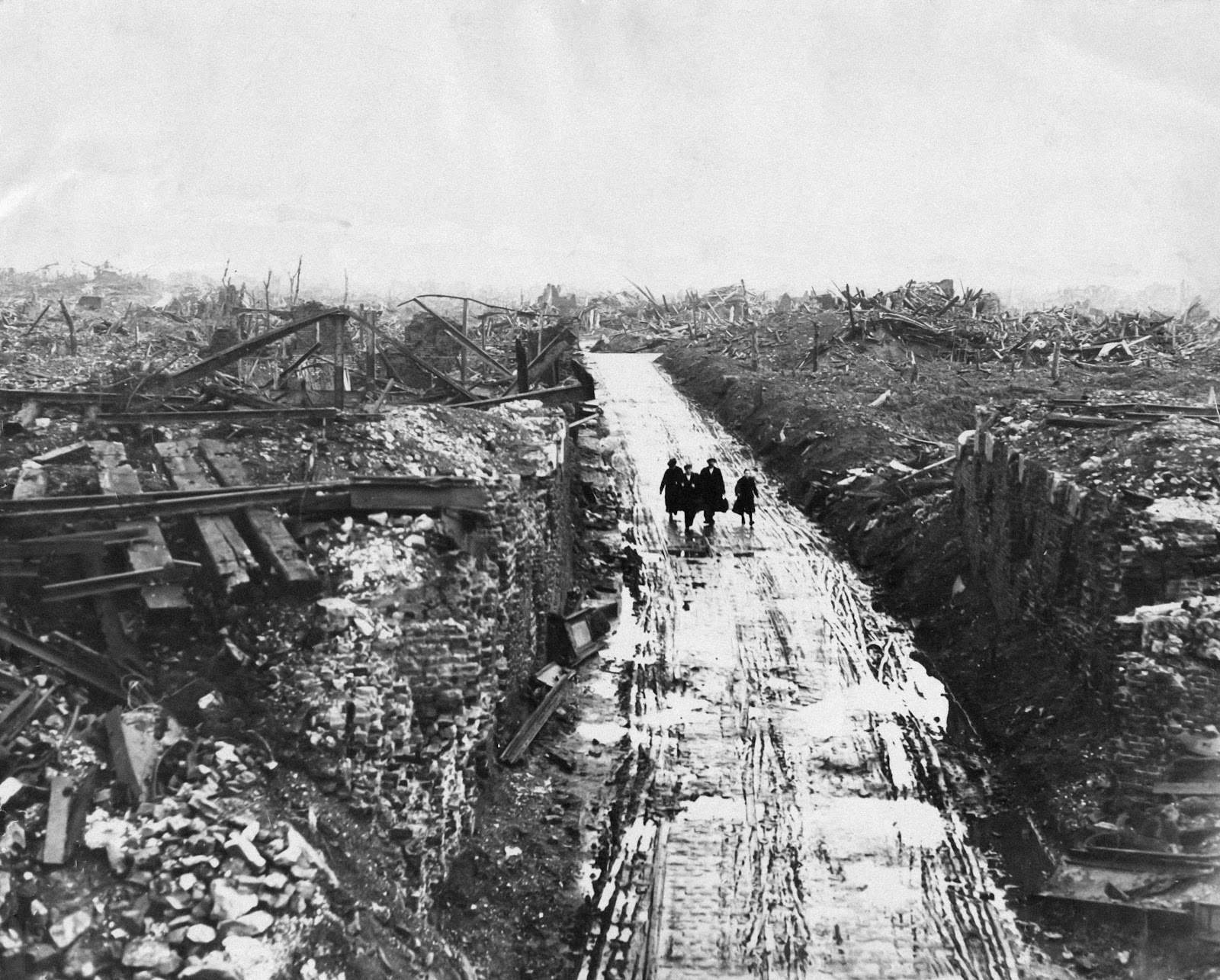When I was a child, my mother frequently referred to “The War,” by which she meant World War II, the war she and my father had survived in Glasgow, Scotland.
I did not know what war was, but I had a vivid imagination, or so my mother always said. Here is what my four- or five-year old mind came up with: I pictured two single-file lines of men facing each other. The men at the front of each line would step forward and engage in a sword fight. (Why swords? I have no idea.). When one fell, the next person in line would step forward. If it rained, everyone would put on raincoats. This would continue until one line was empty. The men remaining in the other line would “win.” (A bit like the card game War, only more bloody.)
I don’t remember when my early vision of warfare was replaced with something closer to the truth. I was seven when Nikita Khruschev declared to representatives of several Western countries, “We will bury you.” That was pretty scary. (Of course, I pictured the Soviet leader with a shovel . . .. ) I was almost 12 by the time of the Cuban Missile Crisis. Certainly, by then I knew enough to be terrified by the thought of missiles attacking New York City, which was only a few miles from my New Jersey home. Also terrifying was the dawning realization that our earth bristled with nuclear weapons, poised to wipe out whole nations. I remember thinking – These weapons are everywhere, and no one asked if I wanted them.
The Vietnam War was raging while I was in high school and college. I marched with others trying to convince our government to bring the troops home. Before that war was over, around 50,000 American soldiers--my peers, and God know how many Vietnamese civilians, had been killed.
Since then, America has been involved in two Gulf wars and a war in Afghanistan, and we have continued to arm nations all over the world.
I am thinking about war today, as battles continue in Gaza and Ukraine and Congo and Darfur, among other places. And as I think about war, here are some of the questions that come up for me:
What would I do to defend my family?
Is it different to defend a nation?
How exactly should we define “defense”? Where would I draw the line? (Our Department of Defense was called the Department of War until 1949. Was that more honest?).
My parents’ city was bombed during WWII. Should they have waved white flags and become German?
Is there a difference between self-defense and revenge?
Is revenge still sweet if it leads to an endless cycle of violence?
Is it ok to go to war to rescue people who are being oppressed, imprisoned, or tortured?
What about the fact that the military straightens some people out? Gives them a career path. Does this justify what Eisenhower called the Military-Industrial Complex?
What is a "just war"? Who gets to decide?
What does it mean to have "rules of war”? If we can come up with rules of war, can’t we come up with another way to sort things out?
Are we the only species that attacks itself?
Japan and Germany were our sworn enemies 80 years ago, and now they are close allies. Can’t we find a way to skip the enemy stage and go straight to being friends?
Candidates are vetted for military service. Could we also vet them for compassion and diplomatic skills?
If we’re going to send young people to war, can we at least take care of them when they get home? Mightn’t there be a need for some help with adjusting to civilian life after serving?
Can we fully fund the VA before spending more money on military hardware?
Come to think of it, can we make sure everyone in America is fed, clothed, and housed before we build any more missiles?
I don’t think I ever shared my early understanding of war with anyone. As methods of managing conflict go, it may seem bizarre, but really, is it any more bizarre than raining bombs on civilians? Might it not be more efficient and less costly to wage war in the manner conceived by my childish self? If we must go to war, could we maybe ask for a dozen volunteers from each side to engage in the sword fight, and have that decide the matter?
Just a thought.
Photo by Provincial Archives of Alberta on Unsplash



